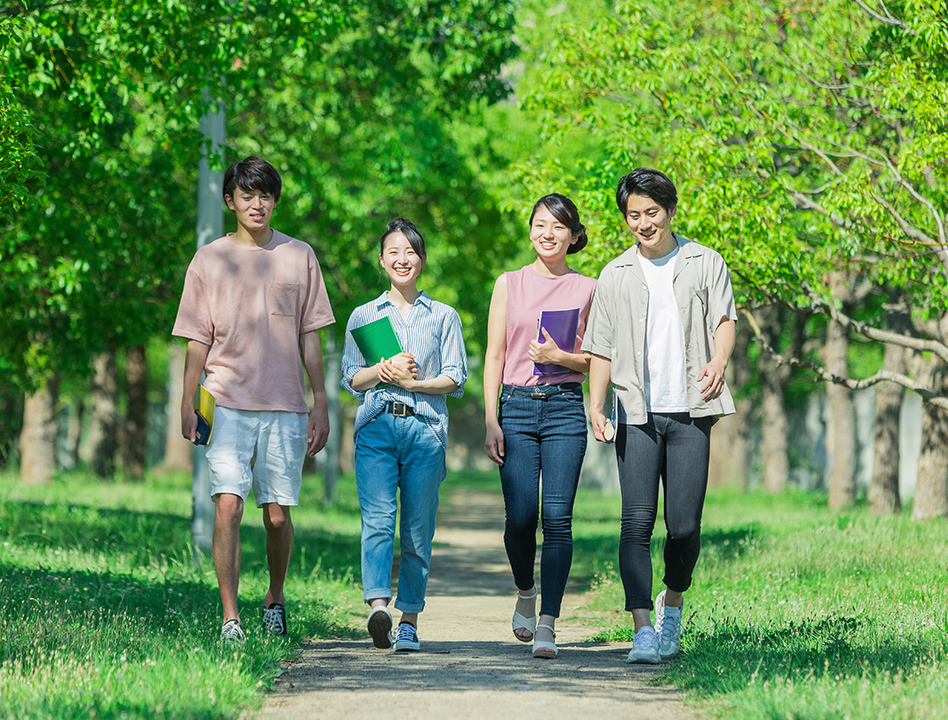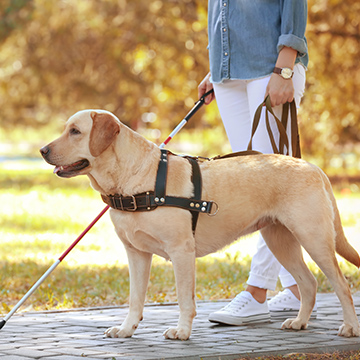College of Community and Human Services
Niiza Campus
OBJECTIVE.
Realizing a society where every life is respected and everyone can lead a happy life
About
College of
Community and
Human Services
Rikkyo University’s College of Community and Human Services provides a learning environment where students explore ways to better address the concepts of community and wellbeing, while examining how we can build a new welfare society.
The college provides students with comprehensive learning opportunities to understand welfare from a broader perspective as well as a chance to learn first-hand through field studies how welfare services are provided. This systematic learning is designed to cultivate students’ thinking and acting abilities, enabling them to acquire a welfare mindset and foster social problem-solving capabilities.
Departments
-
Department of Community Development
Connecting people and communities to the next generation
Fostering individuals who think about regional societal issues from the perspective of stakeholders, who develop ideas, make proposals and implement measures for solutionsThree Features of the Department of Community Development—What does studying at this department mean?
1.Starting from specific problems faced by local communities
Inequality and poverty, depopulation and a declining birth-rate, vacant houses and closed schools, disasters, children and young people with difficulties, and multicultural coexistence. Using these issues as a starting point, we cultivate diverse community-based approaches to problem-solving that take the perspectives of stakeholders into account.
2.Learning diverse academic fields to build a sustainable civil society
Students can acquire interdisciplinary and broad perspectives, such as those of sociology, political science, economics, social welfare, local autonomy, social development, public philosophy and bioethics. Seminars also help students acquire the ability to think and act based on specialized learning.
3.Conducting practical fieldwork in domestic and international settings
As part of the department’s small-scale seminars and internship classes, students also visit places where teaching staff are continuously involved in fieldwork, listen to what people working there have to say, and gain learning experiences by taking specific action. Students participate in community development contests and policy advocacy forums to share with society what they have learned.Capabilities and knowledge that can be gained at the Department of Community Development—What capabilities can be fostered at the department?
Capability to analyze and understand current situations and issues in local communities
Students can develop the ability to think about difficulties faced by local communities and individuals from the perspective of stakeholders, and analyze these challenges based on knowledge of various academic fields. Students also learn about global societal structures and systems, the roles of national and local governments, non-profit organizations, international non-governmental organizations and corporations, as well as social research methods. They can also obtain qualification as a certified social researcher.
The ability to form inclusive communities.
Students acquire the ability to envision and implement systems for solving issues related to both individuals and society as a whole, not only through individual or family solutions, but also through community solutions. The aim is to create new communities where everyone develops a sense of belonging through collaboration and dialogue with a diverse range of people.
The ability to transform a problem found in the field into a social issue that needs to be solved.
Students learn how to listen to the voices of diverse individuals in local communities and acquire the skills to solve issues through policy development. They also develop the ability to take the initiative as an active citizen, such as establishing organizations, disseminating information, and engaging with central and local governments. -
Department of Social Work
Prioritizing people and pursuing social welfare in the new era
Nurturing social workers with practical problem-solving skills and contributing to the development of a welfare societyThree Features of the Department of Social Work—What does studying at this department mean?
1.A diverse range of specialized subjects to study various aspects of social welfare
The Department of Community Policy offers a full range of specialized subjects for studying social welfare from the perspective of administration and policy, including national and local government policies and laws related to welfare.
2.Valuable onsite learning
Field study is developed from the second year to the fourth year, including on-site welfare practice at children's homes and hospitals, and consultation assistance exercises.
3.Learning from teachers with rich experience in welfare-related workplaces
Specialists who have engaged in practical social work become instructors and are responsible for numerous specialized subjects and field practicum. Students can obtain national qualification as certified social workers.What abilities and knowledge can be acquired in the Department of Social Work?
The ability to build a welfare society with a welfare mindset
Welfare involves an effort to value each person as an individual and requires empathy in dealing with people. To that end, students acquire deep insight into what human beings are all about, and a “welfare mindset” to build a better welfare society.
The ability to solve problems based on onsite realities.
Through various kinds of field learning, students develop the ability to empathise with the hardships and difficulties people face, and cultivate the skills needed to propose ways to overcome and solve their problems.
Knowledge, skills, and practical abilities required for social workers
Students acquire the knowledge, skills, and practice required of social workers. They further develop the ability to put social welfare into practice by studying the theories and methods professionals use in the field of consultation assistance.
Realistic on-site learning at places such as administrative institutions, welfare facilities, and nonprofit organizations.

For 10 years from the 2011 Great East Japan Earthquake to March 2021, the College of Community and Human Services engaged in exchanges with people living in disaster-hit areas by factoring in the attributes of each region. Such activities, jointly carried out by students and teaching staff, reflected the college’s philosophy and approach to learning. The college is committed to continuing this stance as it takes on new challenges.
These collaborative activities between the students and faculty reflect the faculty’s learning philosophy and will continue to be encouraged.
Intended learning outcomes
-

Students tackle issues from the perspectives of ordinary people and envision what kind of a welfare community should be created. They can then participate and cooperate in efforts to realize such a community.
-

Students acquire sophisticated management capabilities and the ability to provide assistance that can meet recipients’ needs. They also acquire the abilities to compile local welfare plans, organize local groups and conduct social surveys.
-

Students translate classroom learning into practical understanding through work experience, or by visiting workplaces in a wide range of fields as part of their career education and internship programs.
-

Students identify problems faced by ordinary people through field research and combine this with theory to serve as a guide in overcoming and solving problems.
Learn more
For more information, please visit the links below.

